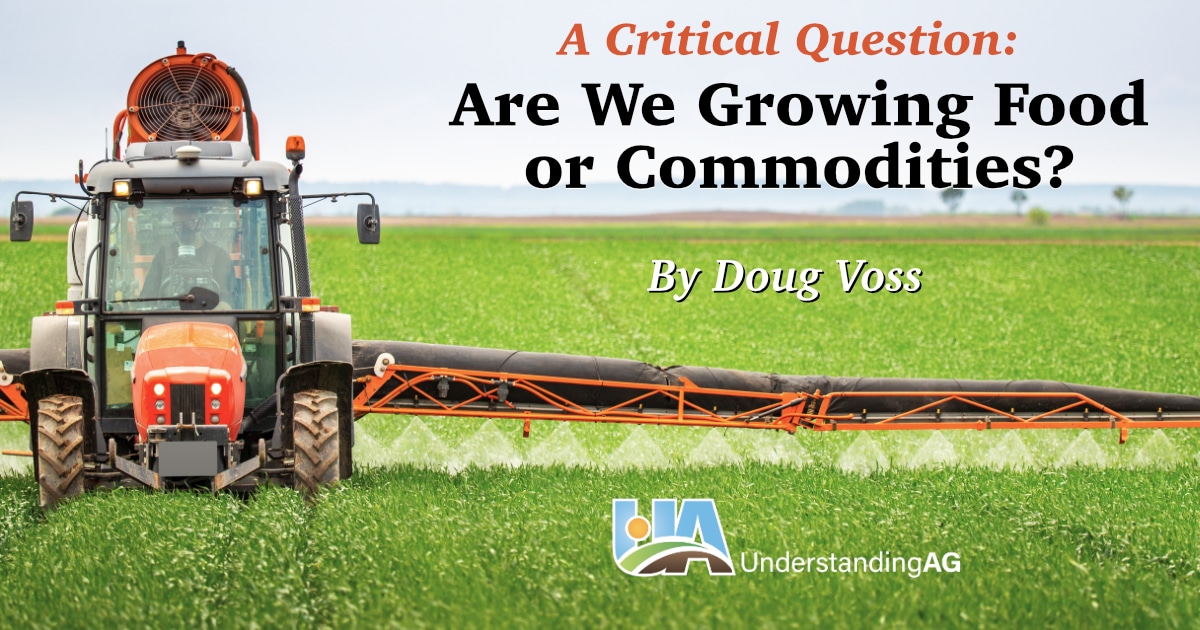
Those of us who grow and raise food and fiber refer to ourselves as farmers, ranchers or producers. What makes us what we are? Is it land, livestock, machinery, our skill set? All of these are part of agriculture.
What about the products that we produce? Do we have a good reason for what we grow or raise, or are we following the convention of our upbringing or our region? Do we know why we do what we do? For far too many farmers, the answer to that question is “Because my family did it this way;” “This is what we raise/grow around here;” “This is dairy country;” or “This is corn and bean country.” While few give it much thought, it’s critical that we understand why we grow or raise what we do.
If we truly give this some thought, might it influence what we produce or even how it is produced? Might we consider our resources more carefully and the impact of what we are doing more carefully?
Consider some real-life examples:
Example 1
A farmer hires a local Co-op to apply insecticide to a soybean field to control aphids. The wind conditions aren't right, but it's applied anyway, regardless of the impact on land and people downwind. Technically, this violates the regulations on spraying pesticides, but it happens every year in too many places. Was the aphid pressure really at an economic threshold or was the spraying purely preventative? If there were significant aphids present, does the farmer ask why they are attacking his soybeans? What is the real cause of the aphid infestation? Was it preventable?
Example 2
A rancher opens all the gates to all pastures to feed livestock during a drought. Now the whole ranch is exposed to chronic overgrazing and degradation from the grazing animals. The animals spend significant time traveling to find good grazing, which has a negative impact on the pastures and livestock body conditions. Did the rancher stop to consider other options—options that would produce far better results both during and after the drought?
In both examples, very undesirable conditions were exacerbated by specific management decisions. These conditions did not start at the moment but were influenced by prior management decisions made over a period of years.
Do we operate with a mindset that we are producing a commodity, or do we operate from the mindset of producing a food? They are not the same mindsets. Most farmers, and even ranchers, in today’s agriculture think that we are producing commodities. One way of thinking means we are consumer focused, and the other way of thinking means we give the consumer little to no thought.
Many years ago, synchronized artificial insemination (AI) breeding was introduced to dairy farms in our area. We had an exchange student from Europe working on our farm at the time and he posed a question I had not considered before. He asked, “What effect does the synchronized breeding program have on people who consume the meat from those animals once they are retired from the milking herd?” I honestly could not answer him. I did not know. I would learn later that the answer to his question was, in part, people who ate this meat suffered from broad-spectrum antibiotic use ineffectiveness. This had been determined in Europe 20 years prior to its introduction in our farming region in the .
As farmers, we have used many products, technologies and pharmaceuticals that have the potential to do harm to our ecosystems and to human health. We often believe they are safe, when in reality, we really do not know. Long-term human health and ecosystem health studies have not been done and we do not know the negative compounding and cascading effects that will occur as we go forward.
The bottom line is this: What we tolerate determines our standards. We need to be truly honest with ourselves and recognize that...
- Our resources are more degraded now than several decades ago.
- Our real farm wealth has decreased overall, and the level of farm debt is steadily rising.
- National yields for the major crops have been fairly static over the past ten years.
- Our human health has declined in virtually every area with major disease on the rise.
We need to raise the bar on what we are doing, take responsibility and be committed to be the best stewards we possibly can be. The solutions are there. We just need to recognize them, educate ourselves and then intentionally implement those solutions.
